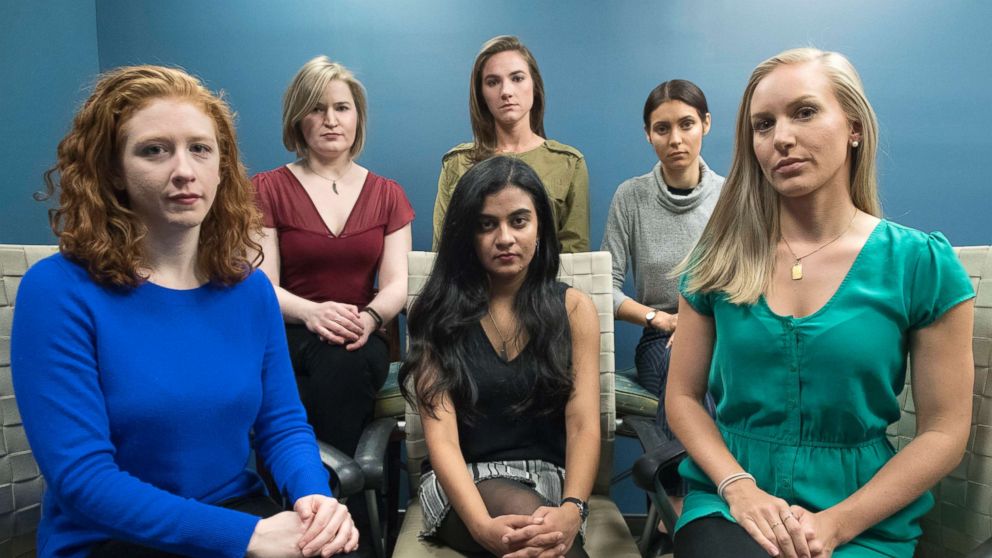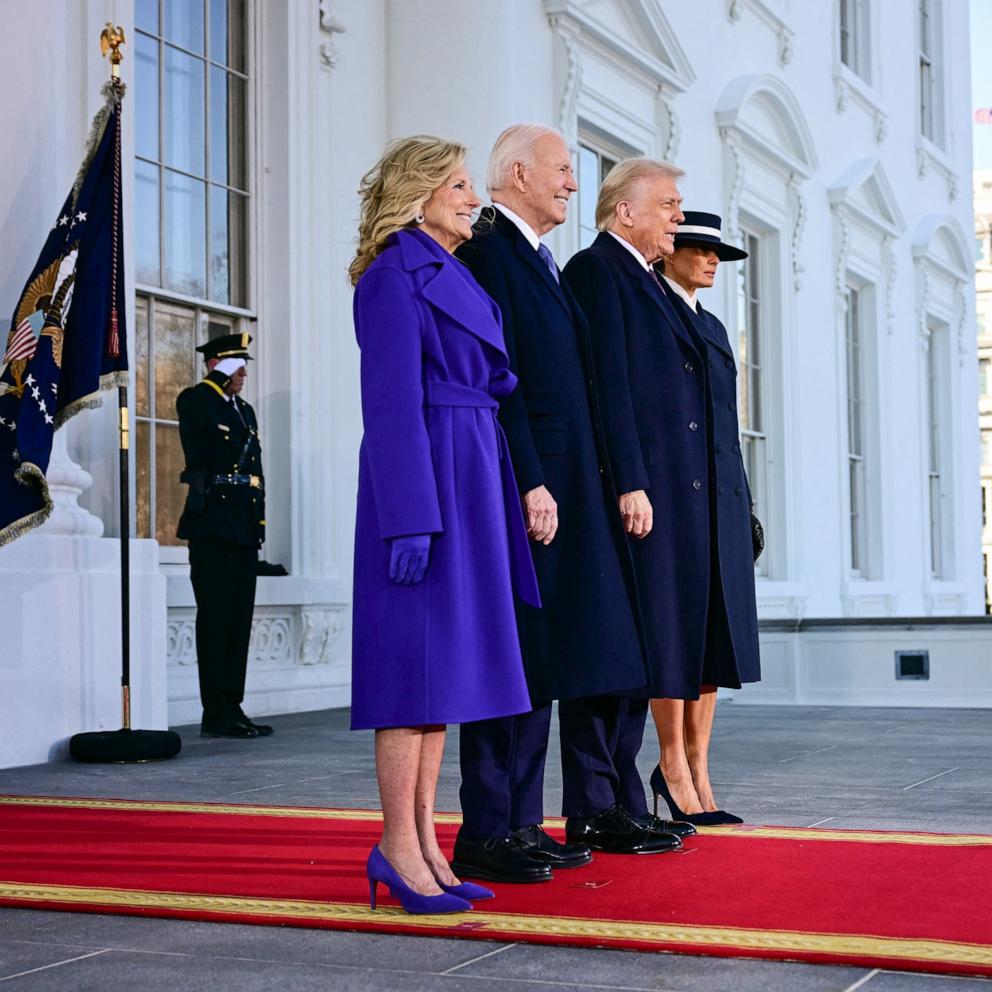Plaintiffs in $70 million Title IX class action lawsuit against Dartmouth describe 'systemic' sexual harassment
Details of alleged widespread sexual harassment conducted by tenured professors in Dartmouth College's psychology department are beginning to emerge as plaintiffs in a class action Title IX lawsuit against the Ivy League school publicly recount their experiences.
A complaint filed Thursday in federal court for the District of New Hampshire alleges that three professors for Dartmouth's Department of Psychological and Brain Sciences "sexually assaulted, sexually harassed and raped female students," both undergraduate and graduate, within the department, according to a press release from the law firm that filed the lawsuit, Sanford Heisler Sharp.
Plaintiffs who spoke to ABC News described a climate in which they would not receive academic advising or resources to complete their research if they did not participate in an "unprofessional culture" of drinking and socializing outside of the office.
Each of the seven named plaintiffs are described in the release as "highly accomplished" female scientists, some of whom are now at Yale, Stanford and Dartmouth.
The department was referred to in the lawsuit as a "predators club" and a "21st Century Animal House." The class represented in the lawsuit is being defined as "the undergraduate and graduate women who were students in the PBS departments," Deborah Marcuse, managing partner of the Sanford Heisler Sharp Baltimore office, told ABC News.
The lawsuit is seeking $70 million in compensatory and punitive damages. Dartmouth College did not immediately reply to ABC News' request for comment.
Details of the harassment
Marcuse described the culture at Dartmouth's psychology department as including "flagrant harassment and gender discrimination."
The plaintiffs and other women in the department experienced "groping, leering, cat calling, all manner of inappropriate communications, and in some cases, sexual assault and rape" by the three professors, Marcuse said.
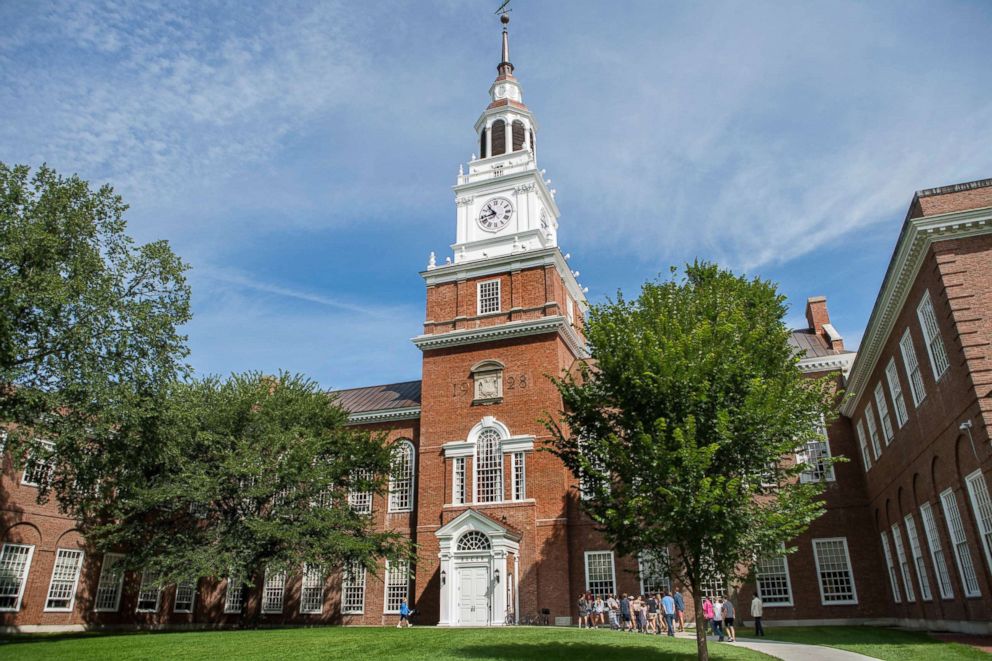
The professors also allegedly hired female lab assistants based on their physical attractiveness to compete for who had the "hottest lab," according to the complaint.
Professors would conduct professional lab meetings at bars and invite students to late-night "hot tub parties" in their homes as well as invite undergraduate students to use cocaine during classes related to addiction as part of a "demonstration," the complaint states.
'From an early point, it became clear that this was what was needed.'
Plaintiff Kristina Rapuano, who arrived at Dartmouth in 2012 to complete her Ph.D., told ABC News she was sexually assaulted by one of the professors she socialized with to gain the advising and resources she needed to conduct her research.
"Soon after I arrived ... I quickly noticed that in order to get academic advising from ... my adviser, it required me to engage with him, socially, in a lot of ways that I felt were very unprofessional," Rapuano said, adding that, "from an early point, it became clear that this was what was needed."
Rapuano says the culture of harassment was so prevalent within the department that she was told by others that drinking with the professor was the way to gain more academic advising, which she felt she wasn't getting when she first arrived. But, over time, the professor began to "break down professional boundaries."
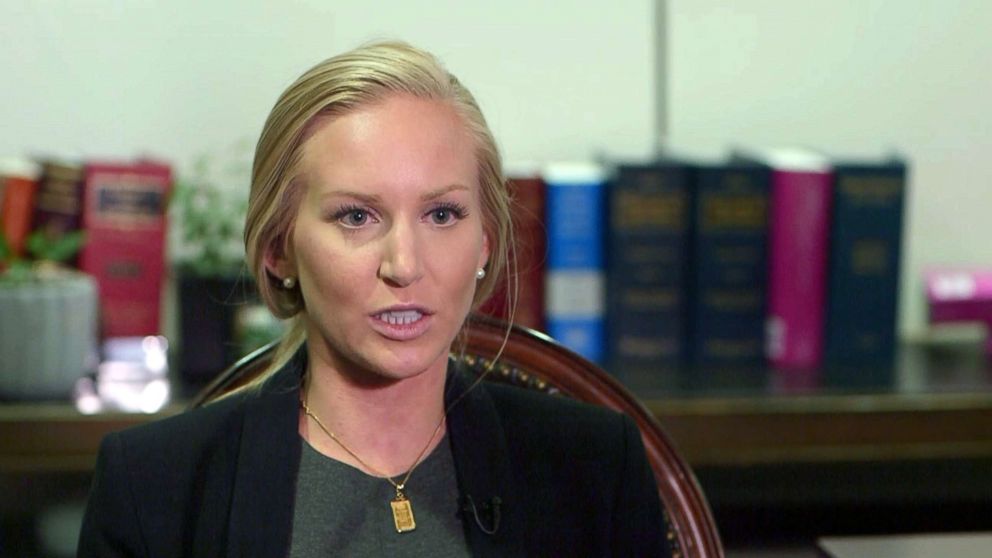
Rapuano alleges she was sexually assaulted at a professional conference in 2015 in California, where she was to present her research. She didn't think much at first of her adviser moving her flight so they would be in California together an additional night, she said.
"I didn't think too much of it, because at that point, heavy drinking was sort of the norm with him, and that was part of the expectation," she said. "It wasn't until the following morning that I realized it wasn't just drinking that had happened that night."
After the alleged assault, she says she told the professor that she "didn't want that to ever happen again" and aimed to "appease him as minimally" as possible so she would receive the advising and resources that she needed, but he continued to treat her as a "sex object" and not his graduate student.
"After that point, I had tried to navigate the situation that I was in as best as I could," she said. "It was incredibly challenging, but I just tried to get through it."
'I refused to participate in that culture.'
Andrea Courtney, who graduated from Dartmouth with her masters in September 2017 and is now a post-doctoral scholar at Stanford University, characterized the climate at Dartmouth's psychology department as "a boys' club environment."
"There was excessive drinking, and graduate students and undergraduate students were expected to socialize outside of work hours" and to "drink pretty excessively with their advisers," Courtney told ABC News.
Having access to resources and academic advising were "crucial" to graduate students' success, Courtney said.
"And our scientific endeavors were very tied to that boys' club culture," she added.
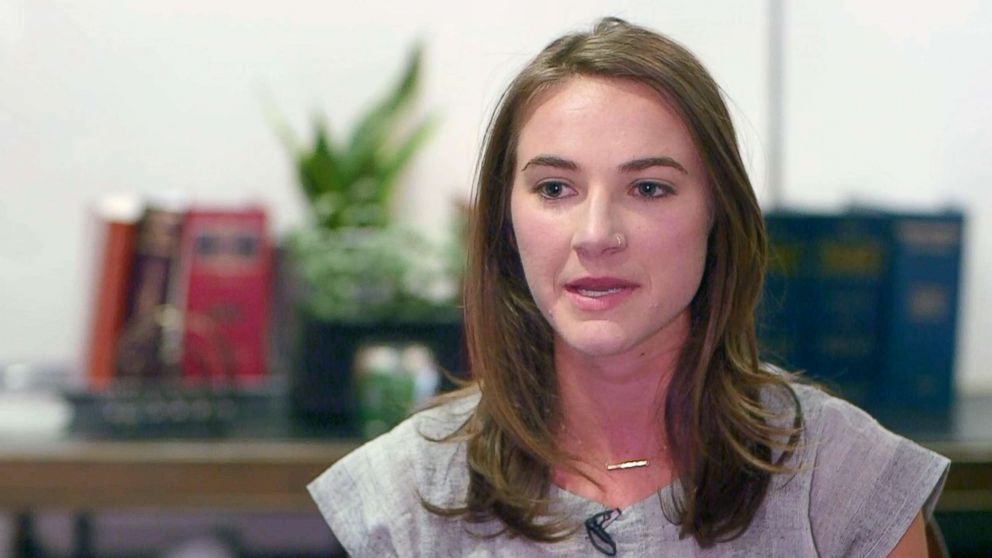
Courtney, who was in the lab of the professor who allegedly sexually assaulted Rapuano for five years, described it as a "highly sexualized culture," where comments about the attractiveness of the female lab members were common.
"He commented on the breast sizes of his graduate students," she said. "He asked about our sex lives."
That same professor was "very fond" of making his students take photos in which they flashed their middle finger at the click of the camera, Courtney said.
"It was just little things like that that started to build up and degrade the professional climate in graduate school," she said, adding that she and others who experienced the harassment would chalk it up to a friendly notion or assume they were misinterpreting something." She says they would also receive what she described as "fake apologies," where the professors would offer "emotionally manipulative explanations for what had happened" and make the women feel as if it was their fault.
Courtney also had interactions with another one of the accused professors, who she said made "inappropriate comments" on her attractiveness and would grab her and pull her away from other students in some instances, one time grabbing her hand and walking her up the block.
"It wasn't as overtly sexual as many other people's experiences have been, but it was certainly an uncomfortable one," she said.
Courtney said she received "much less academic advising" than she "expected and deserved" because she "refused to participate in that culture at times."
Dartmouth allegedly knew about the allegations for a decade.
The lawsuit alleges that Dartmouth "willfully ignored more than a decade of widespread sexual harassment."
Some female professors came forward as early as 2002 and 2005 to complain about the conduct of the three professors, but "nothing was done," Marcuse said.
Dartmouth did not take action until the plaintiffs and other women within the department organized and filed a collective Title IX complaint against the professors in the spring of 2017, Marcuse said.
"It wasn’t until I began to learn about other stories of women getting hurt at the department that I realized that this wasn’t an isolated case -- that this was happening to other women," Rapuano said. "At that point, I felt that I needed to come forward because this was a pattern that was going to continue if we didn’t speak up."
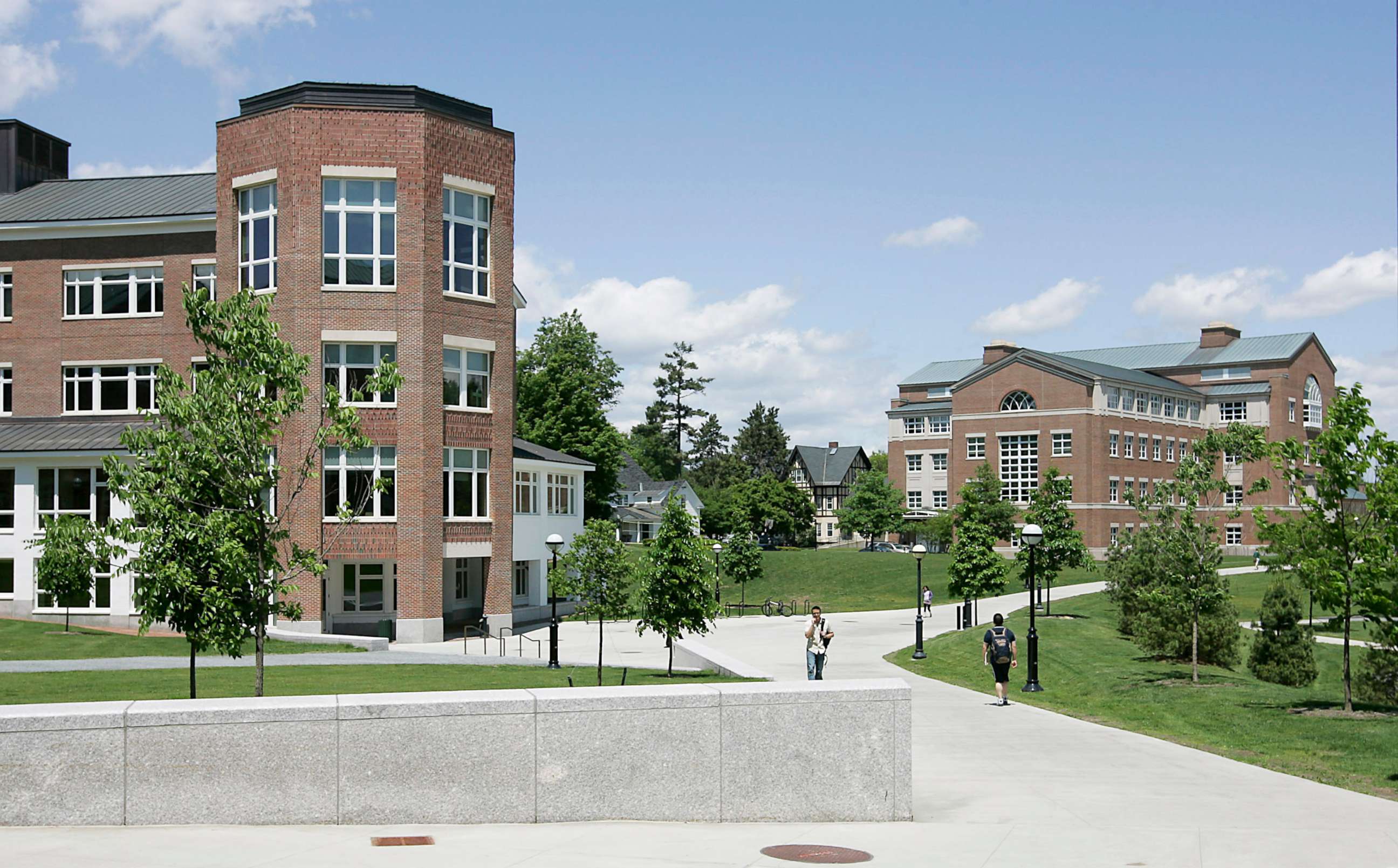
Administrators displayed "willful ignorance" at first, Courtney said, and advised students to wait until after their annual standing meeting -- in which their advisers would evaluate them in front of the department -- because if they didn't stay in their labs before the meeting their character might be slammed in front of the department.
Some students stayed in their labs for up to four months after the complaints were made, and during that time "some pretty severe cases of sexual harassment and sexual assault continued," Courtney alleged.
"So, I really feel like that's the point where Dartmouth failed us," she said. "Some of those people wouldn't have been harmed the way that they were harmed had these men been removed immediately following the complaints, and there was sufficient information at that point in time to know that they were a pretty severe threat to the female graduate students and undergraduate students."
Student activism brought media attention to the issue, which prompted the New Hampshire attorney general to launch a criminal probe into the conduct of the accused professors, the law firm stated.
In an email to the college community on Thursday, Dartmouth President Philip Hanlon praised the women for coming forward, but did not address any of the allegations that were made as early as 2002, according to The Associated Press.
"I would like to reiterate that sexual misconduct and harassment have no place at Dartmouth," Hanlon said in an email to the college community Thursday. "We applaud the courage displayed by members of our community within PBS who brought the misconduct allegations to Dartmouth's attention last year. And we remain open to a fair resolution of the students' claims through an alternative to the court process.
Accused professors no longer with the university
One of the accused professors retired over the summer after he was told that he would be fired, while the other two professors resigned soon after, according to the school.
Dartmouth launched an investigation into the professors in 2017, but never released the findings, according to The Associated Press.
One of the three professors objected to being lumped in with the other two men, including the professor whom Capuano accused of sexual assault, releasing a statement through his lawyer denying "creating a toxic environment at Dartmouth College."
Lawsuit aims to prevent "pervasive discrimination against women" in academia
The plaintiffs' goal in filing the lawsuit is "to shine a light on pervasive discrimination against women in academic sciences, at Dartmouth and beyond," according to the law firm's press release.
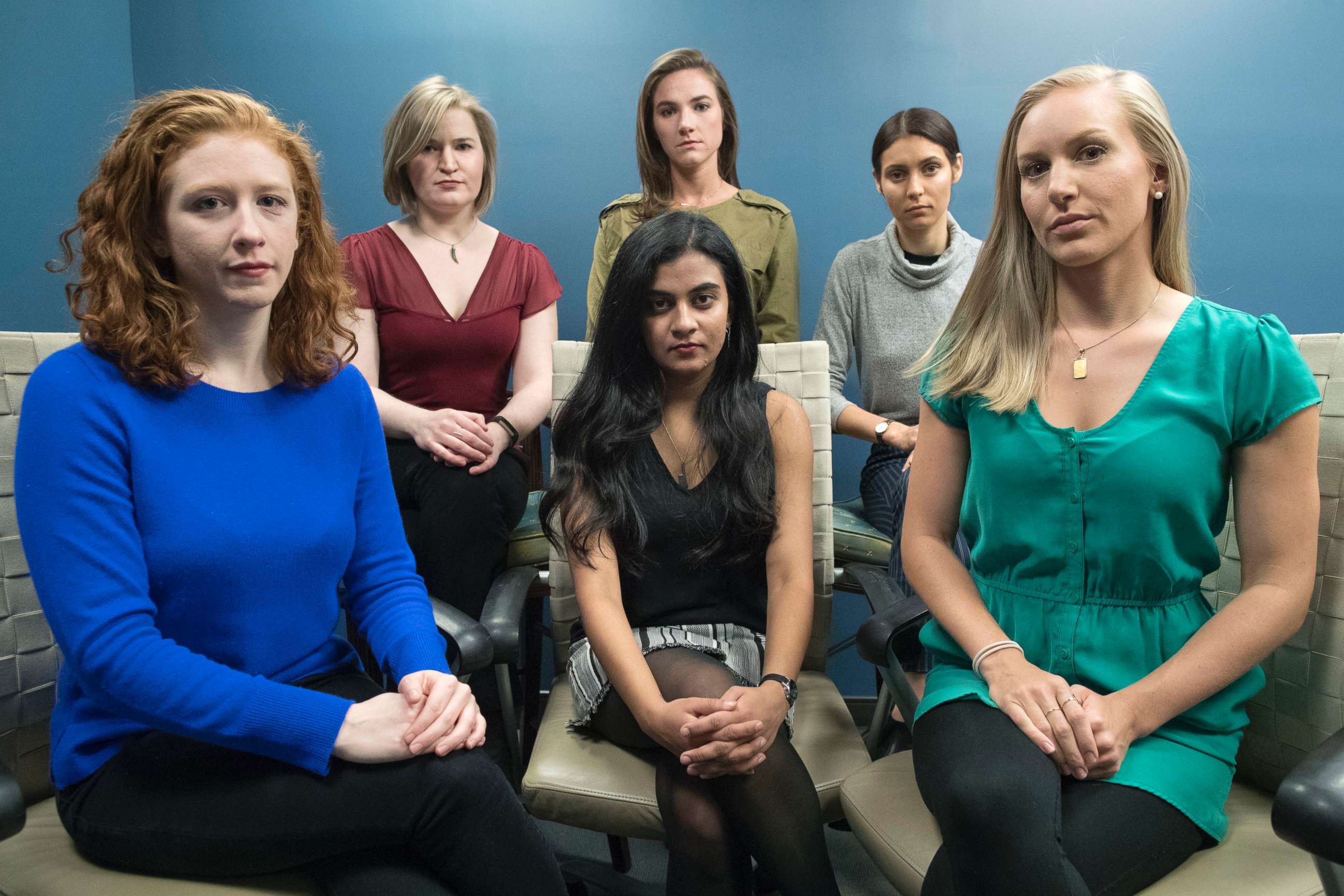
The women risked their careers in order to come forward, Marcuse said.
"They came forward not knowing whether this would be the end of their careers," Marcuse said, "the careers they have been struggling to maintain despite being harassed and assaulted and neglected by their advisers, despite being retaliated against and inadequately taken care of by the institution with which they were studying."
The lawsuit also aims to force Dartmouth to "fully examine the root cause of the pervasive discrimination" the women suffered, Marcuse said, and "to make whatever changes are necessary to ensure women scientists and female students in general are treated with the dignity and respect they deserve."
ABC News' Ben Stein and Jason Volack contributed to this report.
